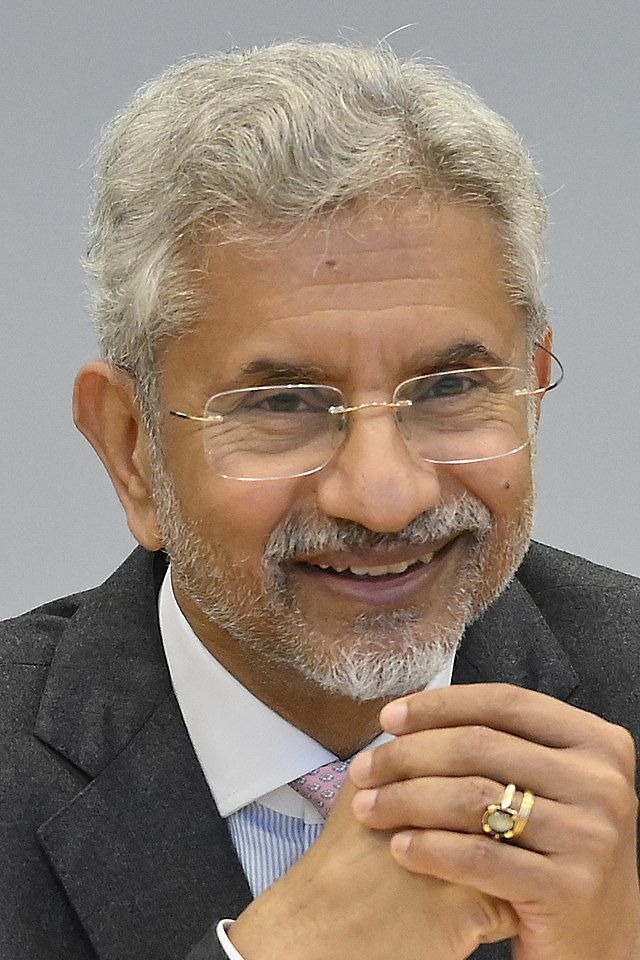In the latest development in the India and Canada diplomatic spat, External Affairs Minister S. Jaishankar said he informed his Canadian counterpart that it was not the Indian government’s “policy“ to engage in acts like the killing of Khalistani separatist leader Hardeep Singh Nijjar on Canadian soil- in short, indicating that extra-territorial killings were not a route taken by the Government of India. His remarks were made during an event at the Council on Foreign Relations in New York, moderated by former U.S Ambassador to India Kenneth Juster.
India and Canada diplomatic relations have strained over the last week after Canada accused India of having a hand in the killing of Nijjar, who was murdered by two unknown gunmen outside a gurudwara in British Columbia last June.
Mr. Jaishankar said in the course of his speech that Canada had a very permissive environment for secessionist activity “because of political reasons,” and that there were significant amounts of “organised crime relating to secessionist forces” – such as the Khalistani separatist movement. “We have been “badgering the Canadians….We have given them a lot of information about organised crime leadership, which operates out of Canada,” he said. He also noted that several extradition requests had been made to Canada, and that India’s diplomats have received threats and its consulates have been attacked.
As to the Nijjar issue, the Minister said that the government was open to looking at any specific information the Canadians had. On being asked about any evidence from Canada linking Indian government agents to Nijjar’s alleged killing, especially evidence of intercepted diplomatic communications, he did not clearly confirm or deny whether he had seen such documents.
Meanwhile, Canadian Prime Minister Justin Trudeau has said that Canada shared credible information with India many weeks ago about its potential involvement in the Nijjar killing. And as recently as Tuesday, Canada maintained that it was concerned about foreign interference in its politics.
Diplomatic relations between Canada and India have been strained over a week. Missions in both countries have been downsized, diplomats dismissed and sharp words exchanged. Trade ties between the two nations are also likely to be affected, and the Indian diaspora in Canada may also suffer; Indians form the largest share of immigrants, foreign students, foreign workers, and other groups in Canada. Talks on a proposed trade deal have halted, and an October trade mission postponed.
Here’s a deeper look at how and why India-Canada relations have taken a tailspin. Observers say ties between the two countries are at their lowest point since the 1980s. There was a positive reset in 2010 when Prime Minister Stephen Harper apologised for the 1985 bombing of Air India ‘Kanishka’ Flight 182 which killed 329 people; it was allegedly masterminded by Khalistani separatists based in Canada.
Some, like former Foreign Secretary Nirupama Rao, say that the situation is hard to repair as the “Canadian record of tolerating the most egregious, criminal activity by some extremist members of the Sikh community” has continued despite denials by “successive Canadian governments.”
Besides the diplomatic cross-fire, questions about the role of the Five Eyes intelligence alliance, comprising Australia, Canada, New Zealand, the United Kingdom, and the United States, have also arisen. When asked about reported intelligence-sharing between these countries on the Nijjar killing and about FBI intimating certain individuals to threats to their lives after this killing, Mr. Jaishankar countered that he was “not part of the Five Eyes.”
“I’m certainly not part of the FBI,” he said. (The Hindu)



 Logging you in...
Logging you in... Loading IntenseDebate Comments...
Loading IntenseDebate Comments...

